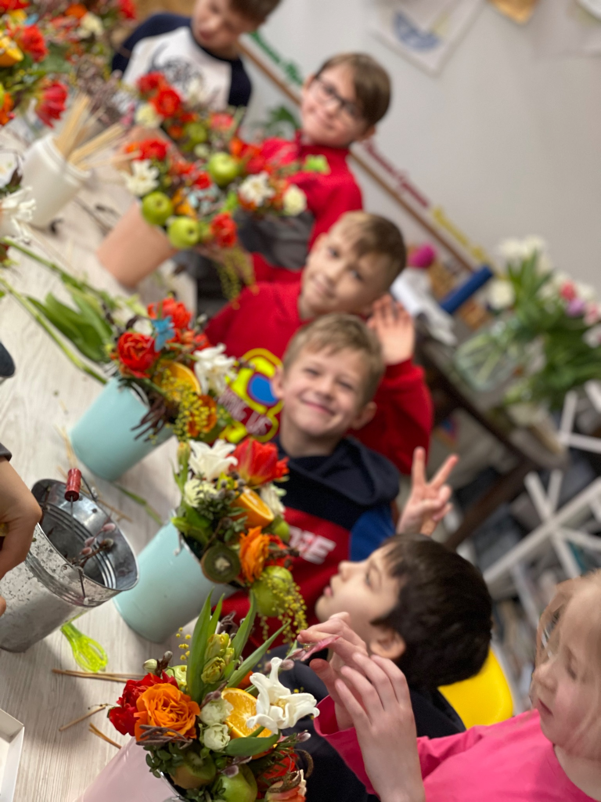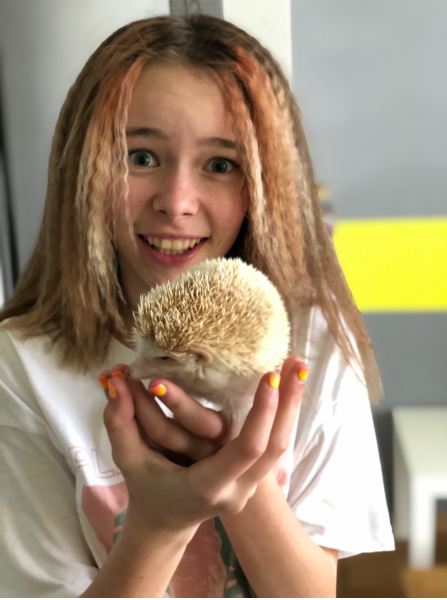violetta kaleda
“Of course, we dream of returning home and continuing our favorite business, not online. Our team sticks together, although some went to England and others to Finland, for safety reasons. I don’t know if they will return. “ _ Kaleda Violetta
What happens to a school community when war arrives on its doorstep? Phonetic Planet recently spoke with a Montessori professional in Ukraine who, together with her friends, neighbors and colleagues, has had to cope with the unimaginable. We invite you to read this thought provoking article.
Thank you for making the time to chat with us, Kaleda, under such stressful circumstances. We are curious to know a little about your school, and what life was like there in peaceful times.
Our Montessori school and kindergarten is located in the north-east of our country, in the incredibly beautiful city of Kharkiv. The city has many parks and educational institutions, and is home to a young, dynamic and educated population. My memories of the school, as it was before the war, are fond. Children adored the school, they ran to it each day. Grown-up people were very surprised by this, as if wondering “How can children love school so much?”
Every day, the children went for a walk in the afternoon, to Gorky Park. We sat down to eat together, and each time we took turns at setting the table. Every day during lunch at school, we felt like we were in a restaurant.
Our school had sleepovers, we went on excursions, we prepared performances for guests, and we sometimes performed in a kindergarten for younger children.
There were always flowers in our school, and the children took care of our African hedgehog, Oskar. We lived and learned together as a happy community.
But on February 24 2022, it seemed like everyone in Ukraine woke up to explosions. I had to write to all classroom groups, requiring that children stay at home. And we began to read the news, in which there was silence. Woman with children began to leave the city. It was getting worse every day. Everyone was confused. After one week, we realized that something had to be done in order to keep our school community connected, for the good of everyone, not least the children.
One of our teachers, Mrs Karina, suggested that we begin outreach online. After covid restrictions, we had developed a means to conduct 4-5 lessons a day, according to the schedule. All our plan needed was to be able to stay in contact with the teachers and the children. Our goals were and still are, that the children should continue to learn, that we should stay busy and that we should share only positive things with the students.
Classes were conducted from basements, and from shelters under damaged property. Of course, the children as a whole studied under various conditions. But the important thing was, we were all together.
Everything was changing for the children, but friends and teachers remained in online meetings. Somehow, we supported the children’s learning right through to the end of the school year, despite the fact that everyone was scattered around the world! We even cooked online. After such an experience, it became clear that we should develop a summer program, which we did. It gained a lot of attention on the internet and new people joined us from Germany, England, Canada, the United States, Poland, Estonia and Latvia. We were able to conduct an online program for children between the ages of three and 12 years old, and some adults also joined us in order to study English. Despite a degree of stress and with a full-on schedule without a break, we managed to survive the summer!
Life at school before the war. (All photos in this article were supplied by Kaleda Violetta. )
Are any schools open in your area at present, Kaleda?
In happier times…..a young student smiles for the camera with Oskar. (All photos provided by Kaleda Violetta.)
In Kharkiv, all schools now work online, because we are situated quite close to the border with the invading army. The rockets often come so fast that it would be impossible for us to have time to hide, if we attended school in person. Most of Kharkiv’s children are now located all around the world, where they can attend kindergartens and schools. In fact, very few children stay with us online because it is difficult to maintain this connection. And, of course, live communication is the best for children’s development. We are a private institution, receiving no funding from the State. In our beautiful Montessori space, everything remains as we left it on February 23, 2022, except our friendly classroom pet, who was not able to survive the cold.
In our city, most people speak Russian. But even after the Orange Revolution (a series of protests and political events, that took place in Ukraine from late November 2004 to January 2005) I understood for myself that it is necessary to change the future. Teaching and communication in my school has been exclusively in Ukrainian since 2014.
How do you envision your school in the future, Kaleda?
We don’t know how many people will return, nor even the whereabouts of some of the children with whom we used to spend our days at school. But I know for sure that in their lives, we will remain teachers who loved children, who loved them, and who loved our work. Because, for us, it was not work, it was a pleasure. It was joy! We were that positive example in the lives of those children.
I came back from England because I don’t want to live there. I love Ukraine and I dream of my own new building for a kindergarten and a school in my native city of Kharkiv, where everything will be adjusted and prepared for the children!
Our sincere thanks to Kaleda for helping us to understand the complexities faced by Ukrainian teaching professionals and the children they serve during these challenging times.
You can learn more about Kaleda’s beautiful Montessori school community in Ukraine by exploring the following website; www.svetrebenka.com
Montessori Ukraine is accepting donations of financial support at the following link: https://montessoriua.com/donate/





